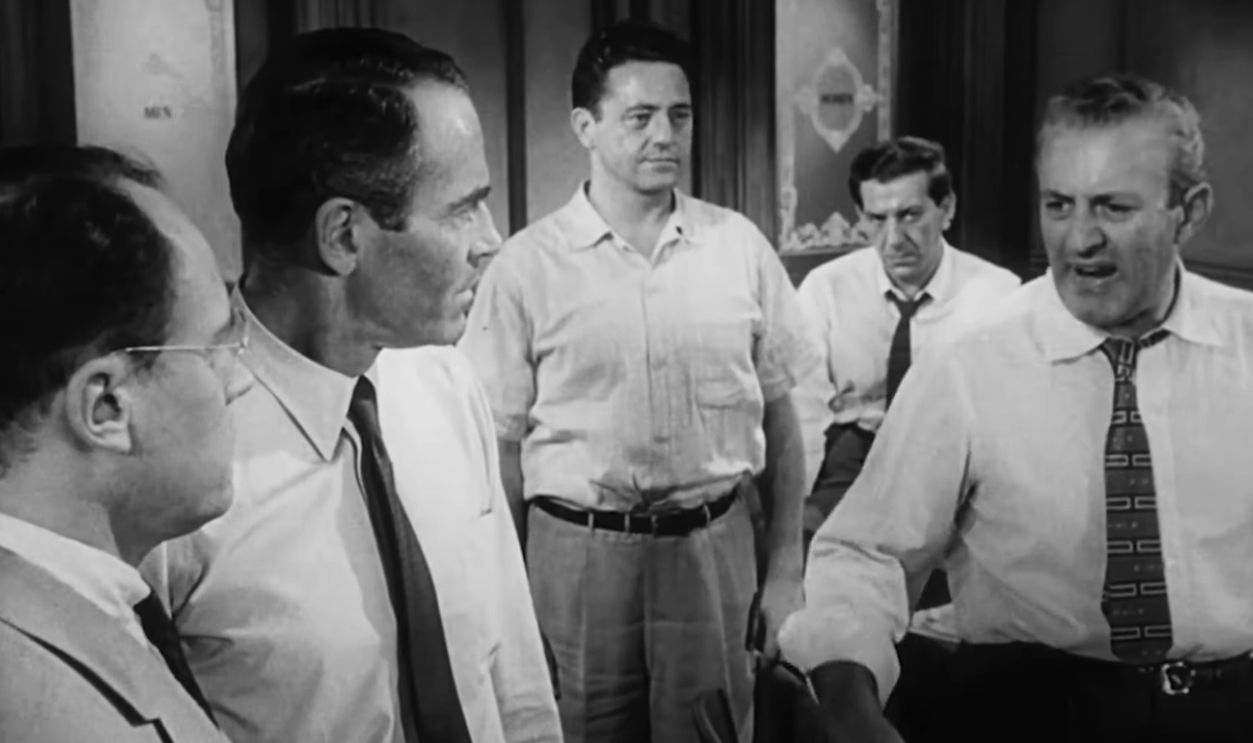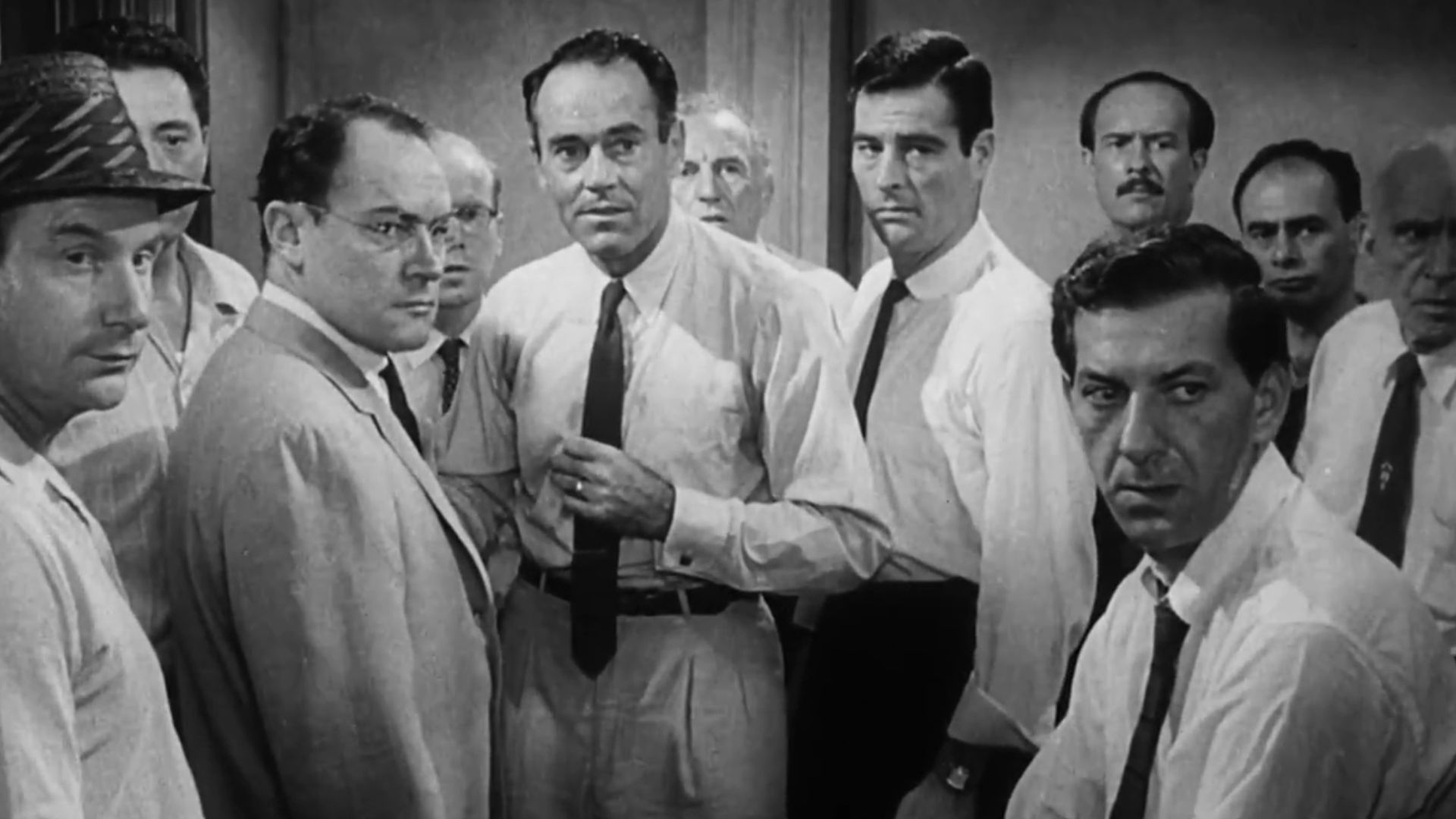When Civic Duty Turns Into A Financial Crisis
Most people think jury duty lasts only a few days. But many felony criminal trials can drag on for weeks or even months on end. In that case, “a temporary inconvenience” can turn into a financial emergency, especially if your employer stops paying you after your first week absent from work.

The Harsh Reality Of Jury Duty Pay
Most courts pay jurors less than the minimum wage, which is anywhere from $5 to $50 per day, depending on the state. In federal court, it’s typically $50. That might cover your lunch or parking, but certainly not rent, bills, or lost wages.
 Screenshot from Juror #2, Warner Bros. Pictures
Screenshot from Juror #2, Warner Bros. Pictures
What The Law Requires Employers To Do
In most states, employers are only obligated to let you take time off for jury duty; they aren’t required to keep paying you. Some states mandate a few paid days, but beyond that, you’re on your own unless your company offers paid leave for civic service.
Check Your Employee Handbook Before You Panic
Don’t assume your boss is cutting you off unfairly. Review your company’s HR policy. Some employers voluntarily cover pay for the first week or two. If your company has multiple locations, the policy might differ depending on local laws.
Federal Vs State Jury Duty Requirements
If you’re serving on a federal jury, the pay is standardized ($50 a day plus mileage). But for state and local trials, the rate can vary a lot. Whatever hardship claims you make will be handled by the local court, not your employer.
 Screenshot from 12 Angry Men, United Artists
Screenshot from 12 Angry Men, United Artists
Can You Claim A Financial Hardship?
If serving for months will cause serious financial distress, you can request to be excused or reassigned. Courts take hardship claims seriously, but you also have to prove that it will cause a legitimate impact, including things like risk of eviction, loss of income, or family dependence. Anything less will be seen as an attempt by you to skip out on your civic duty.
File A Hardship Request The Right Way
There’s a right way and a wrong way to go about making a hardship claim. Just telling the clerk “I can’t afford this” isn’t going to cut it. Put the request in writing. Be clear, professional, and include supporting documentation like pay stubs, rent statements, or proof of dependents. Judges have discretion, and well-documented requests understandably have a higher probability of being successful.
Be Honest But Not Dramatic With The Court
Avoid exaggerating, yelling, carrying on, or threatening to quit your job. Instead, emphasize your willingness to serve if it were financially possible. Judges are more likely to be lenient or shorten your service if they see you’re acting in good faith.
Talk To Your Employer Before Things Get Ugly
Communicate early and respectfully. Let your boss know the estimated trial timeline, provide copies of your jury summons, and ask if some kind of unpaid leave or flexible arrangement is possible. Keeping your supervisors informed prevents resentment and misunderstandings from brewing.
Know Your Protection Against Retaliation
Under federal law, your employer can’t fire, demote, or harass you for doing jury duty. If they threaten your job or make comments insinuating that you’ll “pay the price for this later,” that can be grounds for a legal complaint.
What If You’re Self-Employed Or A Contractor?
For freelancers and gig workers, jury duty can mean the total loss of income. Unfortunately, courts rarely make exceptions for those who are self-employed. Your best option is to document hardship as best you can and request to postpone or defer service until a slower business period.
How To Plan Financially For Protracted Duty
If you think the trial will drag out for weeks or months, start budgeting as soon as possible. Put a halt on all non-essential spending, set up automatic bill payments, and talk to creditors about temporary hardship programs; these are often more flexible than people realize.
Can You Collect Unemployment Or Paid Leave?
No, you can’t collect unemployment insurance benefits during jury duty, because you’re still technically “employed.” However, if you have unused paid time off or personal days, you might be able to apply them to offset your losses of income during service.
Some States Offer Additional Assistance
A few states, like Massachusetts and Colorado for example, reimburse employers for paying jurors during long trials. Others offer hardship funds for low-income citizens. Check your state’s court website for any kind of “extended jury service” relief programs.
What About Transportation, Parking, Or Meals?
Keep your receipts. Some jurisdictions reimburse travel and parking expenses, and a few provide meal stipends during sequestration or lengthy trials. It won’t fill the gap entirely, but at least it can ease your daily costs.
Don’t Burn Bridges With Your Employer
Even if your boss cuts you off, maintain professionalism. Don’t start venting your frustrations on Tik-Tok or other social media platforms; don’t email or tweet complaints from the courtroom. When the trial ends, follow up with a written note thanking them for accommodating your absence. This will stand you in good stead for future employee performance reviews.
How Jury Duty Affects Hourly And Part-Time Workers
Hourly workers are always the hardest hit in a situation like this. A week without pay means rent money is gone. Some states require partial compensation, but most do not. If you are fortunate enough to belong to a union, check on whether your contract guarantees jury duty pay.
 Screenshot from The Devil’s Advocate, Warner Bros. Pictures
Screenshot from The Devil’s Advocate, Warner Bros. Pictures
When A Long Trial Becomes Financially Impossible
If the case drags on for months beyond the initial expectations and your finances collapse, you can petition the court to be released mid-trial for hardship. Instances like this are rare, but not unheard of. Judges don’t want jurors serving under severe financial distress, because it can affect the impartiality of the jury’s final trial verdict.
Serving Is A Duty But The System Needs Reform
Jury service is essential to democracy, but the system often fails working-class Americans. Pay rates haven’t kept up with ballooning inflation, and long trials can financially ruin ordinary citizens. Advocating for reform isn’t unpatriotic, but a necessity.
 United Artists, Wikimedia Commons
United Artists, Wikimedia Commons
Balance Duty With Reality
You can serve on the jury honorably without sacrificing your financial well-being. Understand your rights, communicate clearly, and document everything. Doing your civic duty is important; as a matter of fact, it’s praiseworthy. But no one should have to go bankrupt fulfilling it.
You May Also Like:
Lawyers From Around The World Share Their Wacky Court Stories
Law & Disorder: These Court Confessions Turned Cases Upside-Down






















